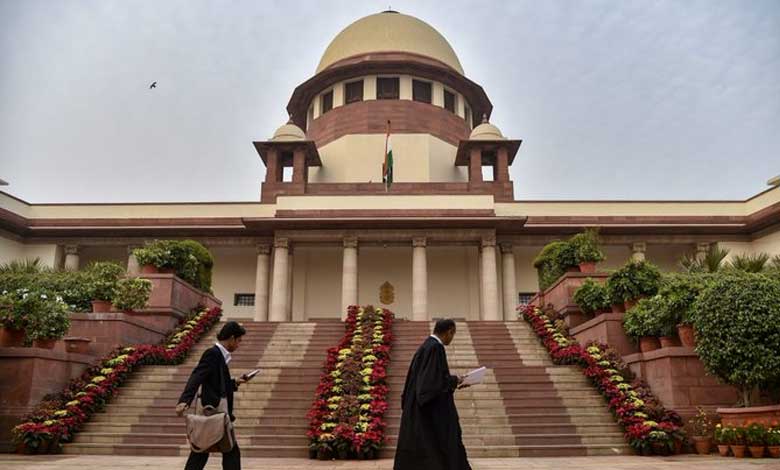Supreme Court Rejects Plea to Recall Tamil Nadu Governor R. N. Ravi
In a rare moment of praise for the ‘Make In India’ initiative, Congress MP and Leader of Opposition, Rahul Gandhi, acknowledged the idea presented by Prime Minister Narendra Modi in the Lok Sabha on Monday. However, he quickly followed up with criticism, calling the program a "damp squib" due to its lack of results.

In a significant ruling on Monday, the Supreme Court dismissed a plea that sought to recall Tamil Nadu Governor R. N. Ravi from his office. The court, led by Chief Justice of India (CJI) Sanjiv Khanna and Justice Sanjay Kumar, termed the petition “ill-conceived” and clarified that such matters were governed by constitutional provisions, which the judiciary is also bound to respect.
Table of Contents
Court Dismisses Plea on Constitutional Grounds
The petition, filed by advocate C.R. Jaya Sukin, called for a direction to the Secretary of the President and other authorities to immediately remove Governor Ravi. The petitioner argued that the Governor had overstepped constitutional limits and that his actions in the political domain were inappropriate.
However, the Supreme Court refused to entertain the plea, with CJI Khanna emphasizing that the judiciary must adhere to the Constitution. “We cannot grant such prayers. There are constitutional provisions for this (removal of Governor). This court is also bound by the Constitution,” said the CJI-led bench. The court’s ruling reaffirmed that a Governor holds office “during the pleasure of the President” and can serve a term of five years, provided they continue to enjoy the President’s confidence.
Controversial Actions by Tamil Nadu Governor
The controversy surrounding Governor Ravi escalated earlier this year when he walked out of the Tamil Nadu Assembly on January 6, 2025, after the National Anthem was not sung at the start of the session. According to Raj Bhavan, the Governor reminded the Assembly of its constitutional duty to play the National Anthem, but when the House refused, he chose to leave in protest.
Chief Minister M.K. Stalin responded sharply to the Governor’s actions, accusing him of politically motivated behavior aimed at undermining the state’s progress. Stalin criticized Ravi for his refusal to deliver the customary inaugural speech in the Assembly, walking out after reading only a brief portion, and for his previous actions during the 2024 Assembly session when he cut short a policy address. Stalin also expressed discontent over the Governor’s past omissions, including skipping parts of the speech that referenced secularism and key historical figures.
Political Tensions Between Governor and State Government
This ongoing tension between Governor Ravi and the Tamil Nadu government is not new. In 2023, similar controversies arose when Ravi skipped sections of his address that acknowledged leaders like Periyar, Dr. B.R. Ambedkar, and the state’s Dravidian model of governance. Critics argue that the Governor’s actions reflect a deeper political divide and have raised questions about the impartiality expected from someone holding such a high constitutional office.
Also Read:February Ration List Revealed: Is Your Card Eligible for Extra Benefits?
Conclusion: A Setback for Those Seeking Governor’s Removal
The Supreme Court’s dismissal of the plea to recall Governor R. N. Ravi serves as a significant legal development in the ongoing political saga. While the Governor’s actions continue to spark debate, the court’s decision underscores the importance of adhering to constitutional processes in matters concerning the removal or recall of officeholders like Governors.
